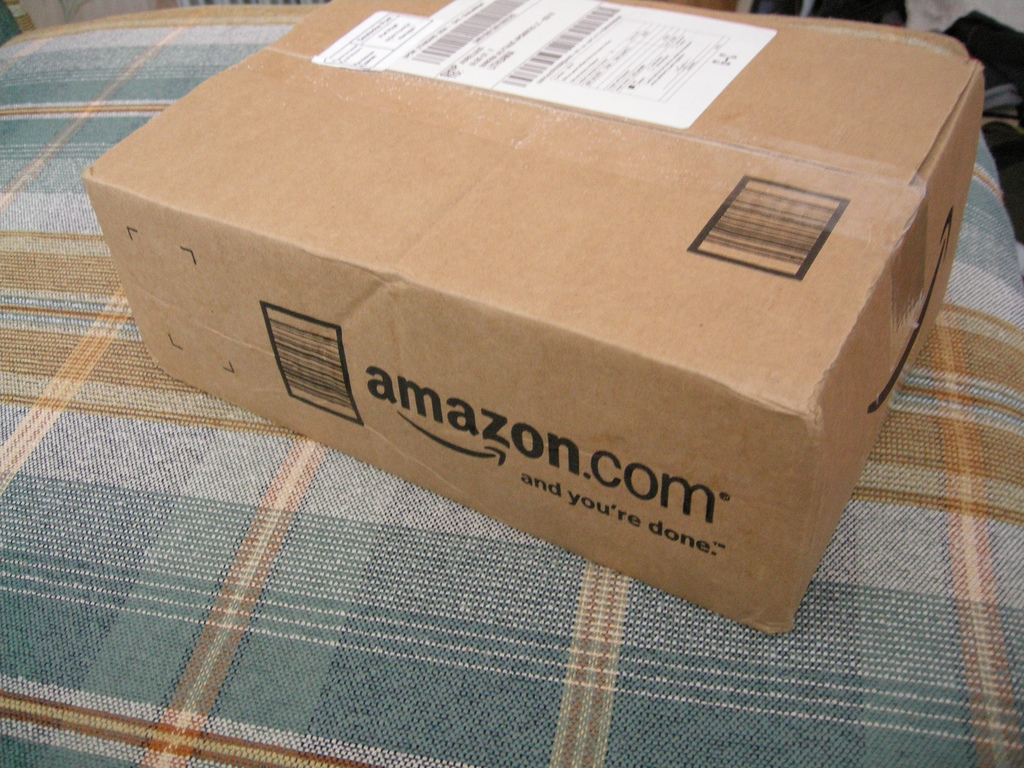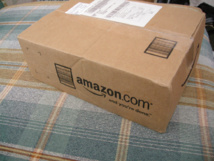The first products can appear on Amazon website at the end of May or early June. Amazon has been developing its own brands for several years, and has already attracted partners in the project, including, for example, TreeHouse Foods Inc. company.
Amazon’s in-house brands will be available to subscribers of Amazon Prime service only (worth $ 99 per year), says a person close to the company. Now, there are more than 50 million people subscribed to this service.
Amazon’s spokesman declined to comment.
The company already has experience in development of its own brands. Several years ago, the retailer began selling bed linen and towels branded Pinzon. Baby wipes Elements are owned by Amazon, too. Today, the company's portfolio is represented by hundreds of different products, including mobile phone cases, batteries, dumbbells and so on. Not long ago, Amazon launched its own line of clothes, shoes and accessories, including dresses under Lark & Ro name and scarves North Eleven.
Many other retailers, such as Walmart, Sephora, or Dean & Deluca sell goods under their own brands. Moreover, many of these products are of much higher quality than those of conventional manufacturers. According to The Private Label Manufacturer's Association (PLMA), in 2015 total sales of such goods in the US rose by 2% year on year, reaching $ 118.4 billion. Profit from sale of goods under private brands is even higher than that of more well-known companies. Why? The answer is simple - in this case, retailers can save on marketing and brand development, said Bill Bishop of the consulting company Brick Meets Click. According to him, given specificity of Amazon’s work, the company can easily determine which products are best sellers, and which are not.
Meanwhile, US retail sales excluding cars rose last month by 0.8% after rising 0.4% in March. Analysts had expected growth rate of 0.5%.
Sales of 11 of the 13 major categories of retail goods increased in April. Thus, the sale of furniture rose by 0.7%, food and beverages - by 0.9%, clothing - by 1%. Dealers recorded a sales growth of 3.2%. At the same time, sales of construction products decreased by 1%, sale of goods of total demand did not change compared with the March level.
source: wsj.com
Amazon’s in-house brands will be available to subscribers of Amazon Prime service only (worth $ 99 per year), says a person close to the company. Now, there are more than 50 million people subscribed to this service.
Amazon’s spokesman declined to comment.
The company already has experience in development of its own brands. Several years ago, the retailer began selling bed linen and towels branded Pinzon. Baby wipes Elements are owned by Amazon, too. Today, the company's portfolio is represented by hundreds of different products, including mobile phone cases, batteries, dumbbells and so on. Not long ago, Amazon launched its own line of clothes, shoes and accessories, including dresses under Lark & Ro name and scarves North Eleven.
Many other retailers, such as Walmart, Sephora, or Dean & Deluca sell goods under their own brands. Moreover, many of these products are of much higher quality than those of conventional manufacturers. According to The Private Label Manufacturer's Association (PLMA), in 2015 total sales of such goods in the US rose by 2% year on year, reaching $ 118.4 billion. Profit from sale of goods under private brands is even higher than that of more well-known companies. Why? The answer is simple - in this case, retailers can save on marketing and brand development, said Bill Bishop of the consulting company Brick Meets Click. According to him, given specificity of Amazon’s work, the company can easily determine which products are best sellers, and which are not.
Meanwhile, US retail sales excluding cars rose last month by 0.8% after rising 0.4% in March. Analysts had expected growth rate of 0.5%.
Sales of 11 of the 13 major categories of retail goods increased in April. Thus, the sale of furniture rose by 0.7%, food and beverages - by 0.9%, clothing - by 1%. Dealers recorded a sales growth of 3.2%. At the same time, sales of construction products decreased by 1%, sale of goods of total demand did not change compared with the March level.
source: wsj.com



















